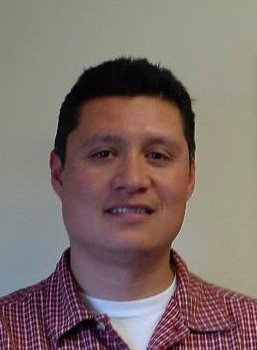INTERVIEWSBy clicking on the interviewee's name (below), you will access biographical information, a downloadable transcript, and a downloadable audio file of the interview recording. NOTE: All interviewees had the opportunity to edit their transcripts. If you would like to quote or cite an interview, please refer to the edited transcript. The transcripts appear in PDF Format, readable with Adobe Acrobat. If you do not have Adobe Acrobat on your computer click on the icon below to get it. Adobe Acrobat is a free program. The audio files appear in REAL (.rm) Format, readable with Real Player. If you do not have Real Player on your computer click on the icon below to get it. Real Player is a free program.
|
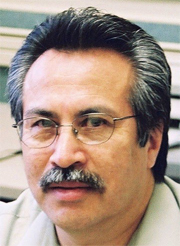 |
Mr. Arauza is an Associate Director of the Multicultural Affairs office at MSUM, where he coordinates Hispanic/Latino and Asian American Programs. He also produces weekly radio shows, Notas Latinas and Ritmos Latinos, for public radio stations in the Midwest. Abner first came to this area as part of a migrant farmworker family and later returned for school and work at the university. In this interview, Mr. Arauza details his childhood in the migrant worker stream between Texas and, among other places, the Fargo-Moorhead region. He describes his love for his work, the importance of education in his life, and the changes he has seen in the Fargo-Moorhead area, especially in regards to the community's response to newcomers. He also briefly discusses the effects of the so-called "Romkey Park Riot" of 2002 on the area's Hispanic population and the community at large. Interviewed April 2002 |
|
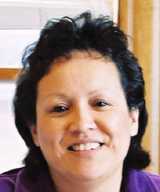 |
Ms. Berlin is employed as a statewide field organizer for the Minnesota Indian Ecumenical Ministry (MIEM), a ministry of the Minnesota Council of Churches. She has written a monthly column from a Native American perspective for the Forum and has been an active participant in the Moorhead Justice Circle. She also leads Talking Circles with adults and youth that look at issues and concerns within Native American communities, including the building of statewide and local networks to enhance, develop and support Native American leadership. In this interview, Sandra Berlin discusses her role in the Justice Circle, the struggles and rewards facing that organization, and the effects that she and her fellow Circle members believe they have had on race relations in the Fargo-Moorhead area. She also describes the issues and difficulties facing the Native American population today, and the release of the Civil Rights Report ("The Status of Equal Opportunities for Minorities in Moorhead, Minnesota") in January of 2000. Interviewed April 2002 |
|
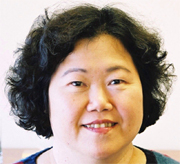 |
Ms. Gunaratne is the executive director of Cultural Diversity Resources, a non-profit organization that sets out to address the challenges and opportunities of increased cultural diversity in the Cass-Clay counties of North Dakota and Minnesota. She was featured as a local person with expertise and experience in diversity issues in The New Pioneers, a public television documentary about immigration in North Dakota. In this interview, Yoke Sim Gunaratne describes in great detail her work with Cultural Diversity Resources--her passion for her job, the triumphs and difficulties the organization has experienced, and the importance of the role the organization plays in the Fargo-Moorhead community. Interviewed April 2002 |
|
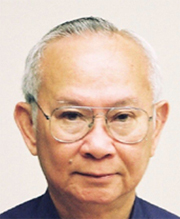 |
Mr. Tran, himself a refugee from Vietnam, retired in January 2002 from his position as the area coordinator of Lutheran Social Services of Moorhead, where he worked with the area's refugee population. He passed away in February 2003. The Moorhead office of LSS has since closed. In this interview, Minh Tran describes his experiences as a refugee and his work with Lutheran Social Services. He offers advice to refugees just arriving in America, as well as their potential employers in the Fargo-Moorhead area. He details the strides Moorhead has made in developing appreciation for the city's multicultural population and offers his thoughts on why Fargo-Moorhead has gradually become more international. Interviewed April 2002 |
|
 |
Mr. Frederickson is a Professor of English and Multicultural Literature at MSUM's New Center for Multidisciplinary Studies. Originally from the Midwest, he served as a Peace Corps volunteer in Yemen. His interview details his self-described "formative years" in Yemen, his conversion to Islam, and his observations regarding multiculturalism in the Fargo-Moorhead area. His interview also contains reflections on how the events of September 11th, 2002 affected the Fargo-Moorhead community. Interviewed May 4, 2003 |
|
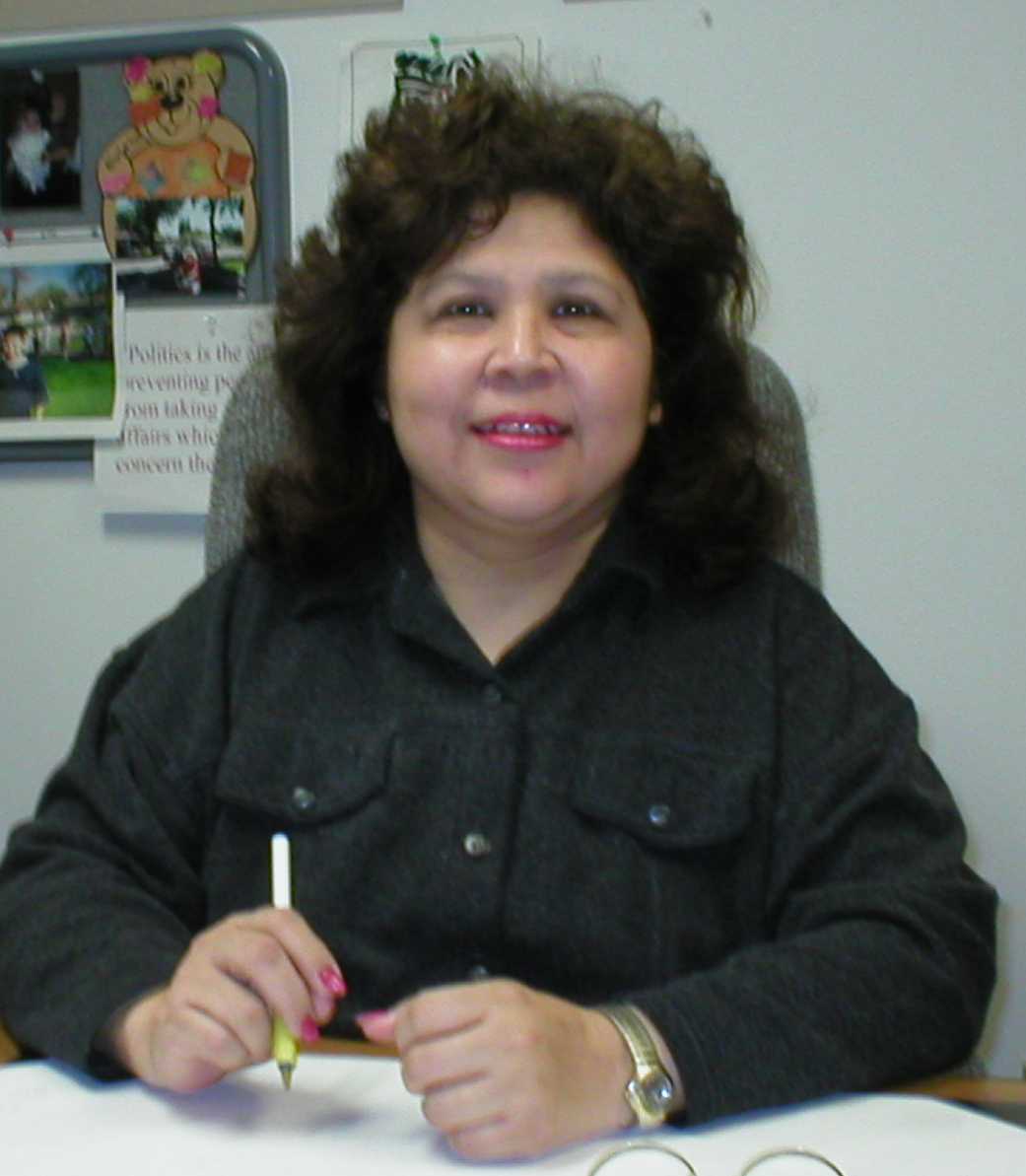 |
Ms. Gonzalez is currently a legal assistant for Centro Legal, a non-profit law office that provides legal services for Latinos. She has also worked for Clay County Social Services, and she started Project Advocacy, a program that helps migrant families attain medical and other services. Her interview focuses on the experiences of migrant families in Moorhead and her various efforts to help them. She also discusses her perceptions of racism in the community and her analysis of what needs to change to improve the quality of life for Latinos. Interviewed May 1, 2003 |
|
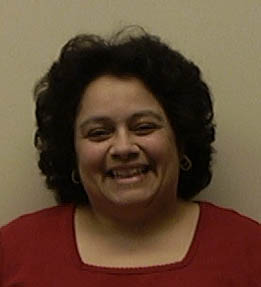 |
|
Ms. Hohnadel is currently the After-School Enrichment Program Coordinator for the Moorhead Healthy Community Initiative, and the first person of color to be elected to the Moorhead School Board. She is a Mexican-American woman originally from Lockhart, TX. She has resided in the Red River Valley since 1982. Her interview details her life from childhood as a migrant laborer to her current involvement with programs that aim to empower children and affirm their value as people. She also shares examples and analysis of her personal experiences with discrimination and stereotyping in the Fargo-Moorhead area as well as her view on the current state of ethnic relations in this community. Interviewed May 5, 2003 |
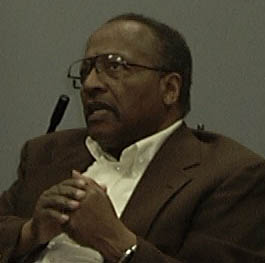 |
In 2002, Rev. McDuffy retired as Assistant Dean of Students and Director of Multicultural Affairs at Concordia College--a position he had held since 1982. Originally from Chicago, Illinois, Rev. McDuffy is a graduate of Loyola University and Northern Baptist Theological Seminary. He has also served as a board member of Cultural Diversity Resources. This interview explores Rev. McDuffy's life and work from his childhood through the present. He shares his experiences as a minority in institutions of higher education that were lacking in diversity, as well as his view on race relations in the Fargo-Moorhead community. Other topics discussed include religious diversity and the current state of welfare programs in this area Interviewed May 3, 2003 |
|
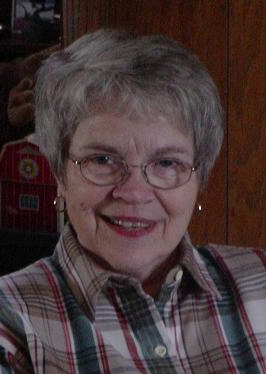 |
Throughout her adult life, Mrs. Williams has been a leading advocate of social justice issues. To improve the community for all and to spread ideas about equality, she has served as a Minnesota State Representative, and currently serves on the Moorhead City Council. Mrs. Williams also co-organized, with fellow advocate Sandi Berlin, a group called the Justice Circle, which formed to respond to the U.S. Civil Rights Report that was issued following the 1998 incident in Moorhead’s Romkey Park. In her interview, Diane Wray Williams gives us an overview of the Justice Circle, how it came into being and how it has evolved, as well as the role of religious institutions and politics in human rights issues in this area. Interviewed April 22nd, 2004 |
|
 |
Among numerous other posts, Mary John has served as editor of The Messenger, a Minority Student Affairs newsletter at MSUM, secretary for the MSU American Indian Student Association and editor of both Red River Times and the Daughters of the Earth newsletter. She also helped organize the Daughters of the Earth, a Native American women’s group, in 1989. In 1997, Mary began production of All My Relatives, a documentary about her family’s history and the oral history of the Spirit Lake Nation. In 2002, All My Relatives earned the Fargo Film Festival’s “Best Feature Film” in the Native Voices category. In this interview, Mary describes some of the hardships and obstacles growing up in the Fargo-Moorhead area. While reflecting that Fargo-Moorhead has improved in race relations, she states that she doesn’t believe that it will ever be one hundred percent racism-free. Mary also shares some personal information regarding her son and the important impact he has had on her life. Interviewed April 28, 2004 |
|
|
Louis Ochoa, Jr. was born in Moorhead, MN, where his parents worked as farm laborers. He attended school in Moorhead, except for four tears as a teenager that his father sought winter work in Texas. He graduated from Hibbing Community College with a two-year Law Enforcement degree. In 1992 he returned to Moorhead, where he completed a degree at MSUM and began working for the Moorhead Police Department. He has been living here ever since. Mr. Ochoa is currently the Youth Services Coordinator for the Moorhead Police Department and is assigned the Red River Alternative Learning Center. He is involved in the summer youth program, teaching kids about theft, smoking, bullying, and respecting others. In 2003, Ochoa received a Human Rights Award from the Moorhead Human Rights Commission. As an "up and coming leader for the Latino community" in Moorhead, Louis believes that advocating for the education of the community's youth on cultural diversity should be a high priority. Topics discussed in this interview include the Moorhead Police Department's response to the Civil Rights Report, current diverstiy efforts within the MPD and their importance, as well as the personal experiences and perspectives of a young Latino community leader. Interviewed April 28, 2004 |
|
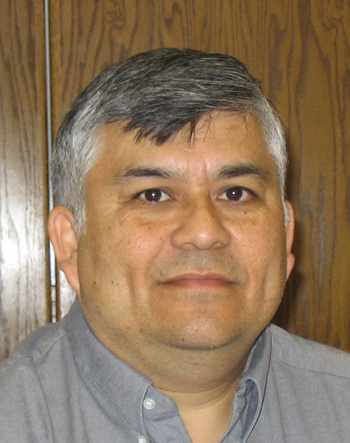 |
Pablo Guajardo has worked for the state of Minnesota for over twenty-five years, holding posts such as the Migrant Labor Representative for the Department of Economic Security and the chairperson of the Minnesota Migrant Council Board. In 2001, he became the first Latino person to run for a seat on the Moorhead City Council. Currently he works for Minnesota State University Moorhead. He continues to serve as a community leader, as he has done since coming to Moorhead, in 1973, from his hometown of Mercedes, Texas. In his interview, Mr. Guajardo shares his recollections of his historic campaign, and reflects on the cultural cost for Chicanos who live in the area. He also addresses diversity in the community, and how it has been affected by a changing economy, as well as his perception that people of color continue to be measured by a “different yardstick.” Interviewed April 23, 2004 |
|
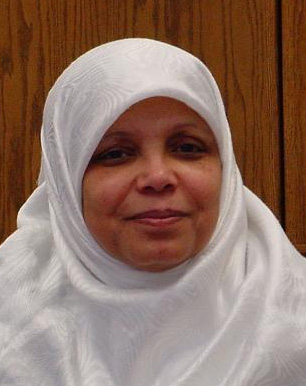 |
Aisha Salih is a board member of Cultural Diversity Resources and a commissioner for the Moorhead Human Rights Commission. She is also a troop leader for Muslim Girl Scouts, and volunteers for the community at large. In the interview, Ms. Salih offers her perspective on what it means to be a Muslim in the Fargo-Moorhead area. She emphasizes the importance of distinguishing the role of culture and religion in understanding people and their perceptions. She also describes her volunteer efforts on behalf of the community. Interviewed April 27, 2004 |
|
|
Gladys Ray was an enrolled member of the Mille Lacs band of Ojibwe, and she grew up on the White Earth Reservation. She moved to Fargo in 1954 after serving in the Women's Army Corps. As a parent, she became involved in visiting schools to teach about Indian culture. She participated in the establishment of the Fargo-Moorhead Indian Center in 1971, thus fulfilling her goal of creating a place where American Indians could seek community support. She also helped organize Project Bridge, an organization through which she helped the Fargo Schools to review portrayals of Indians in their History curriculum. She passed away in February 2006, after serving for many years as a community leader and educator on issues of social justice. This interview details her extensive work in the Fargo-Moorhead community on behalf of education, her attempts to advance the quality of life available to Native Americans, and how her life has been shaped by her strong hold on her ethnicity. Interviewed April 22, 2004. |
